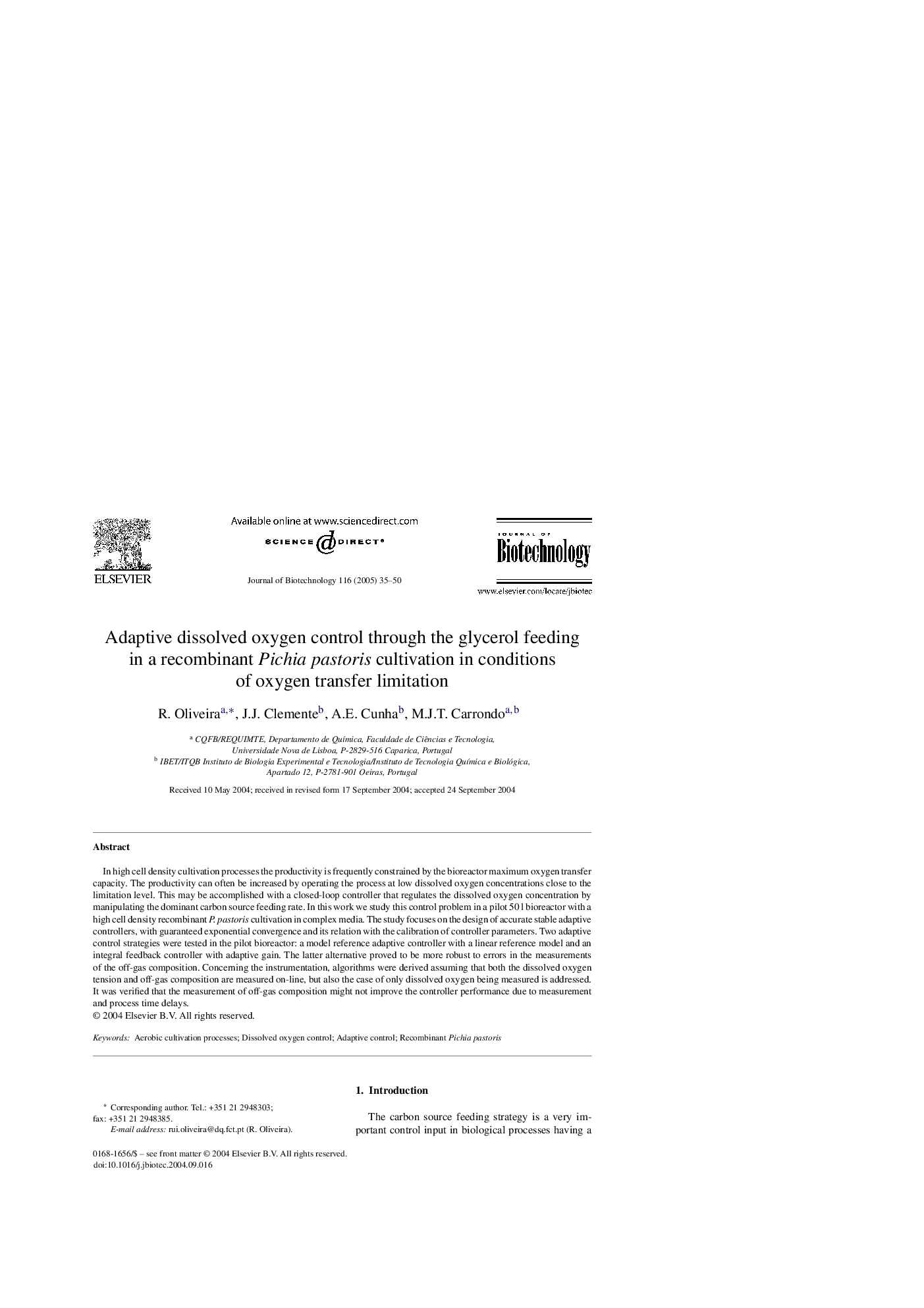| Article ID | Journal | Published Year | Pages | File Type |
|---|---|---|---|---|
| 9604453 | Journal of Biotechnology | 2005 | 16 Pages |
Abstract
In high cell density cultivation processes the productivity is frequently constrained by the bioreactor maximum oxygen transfer capacity. The productivity can often be increased by operating the process at low dissolved oxygen concentrations close to the limitation level. This may be accomplished with a closed-loop controller that regulates the dissolved oxygen concentration by manipulating the dominant carbon source feeding rate. In this work we study this control problem in a pilot 50Â l bioreactor with a high cell density recombinant P. pastoris cultivation in complex media. The study focuses on the design of accurate stable adaptive controllers, with guaranteed exponential convergence and its relation with the calibration of controller parameters. Two adaptive control strategies were tested in the pilot bioreactor: a model reference adaptive controller with a linear reference model and an integral feedback controller with adaptive gain. The latter alternative proved to be more robust to errors in the measurements of the off-gas composition. Concerning the instrumentation, algorithms were derived assuming that both the dissolved oxygen tension and off-gas composition are measured on-line, but also the case of only dissolved oxygen being measured is addressed. It was verified that the measurement of off-gas composition might not improve the controller performance due to measurement and process time delays.
Related Topics
Physical Sciences and Engineering
Chemical Engineering
Bioengineering
Authors
R. Oliveira, J.J. Clemente, A.E. Cunha, M.J.T. Carrondo,
